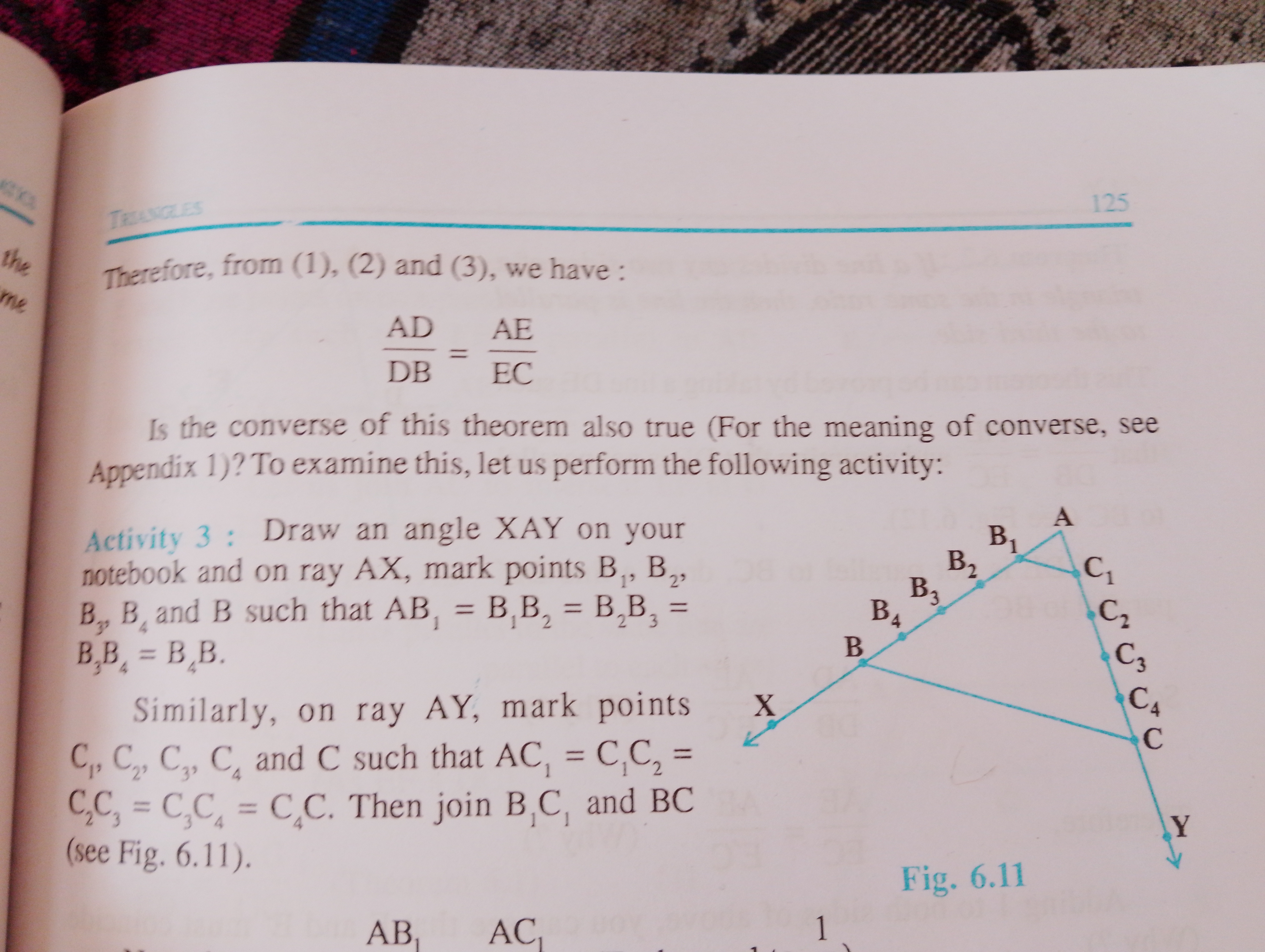Is the converse of this theorem also true? To examine this, let us perform the following activity: Draw an angle XAY on your notebook and on ray AX, mark points B1, B2, B3, B4 and... Is the converse of this theorem also true? To examine this, let us perform the following activity: Draw an angle XAY on your notebook and on ray AX, mark points B1, B2, B3, B4 and B such that AB1 = AB2 = AB3 = AB4 = AB. Similarly, on ray AY, mark points C1, C2, C3, C4 and C such that AC1 = AC2 = AC3 = AC4. Then join B1C1 and BC.

Understand the Problem
The question is discussing a theorem related to triangles and asking about the converse of that theorem. It invites the user to perform an activity involving the construction of an angle and various marked points on the rays extending from that angle.
Answer
Examine using the geometric construction.
The given theorem's converse can be examined using the provided geometric construction.
Answer for screen readers
The given theorem's converse can be examined using the provided geometric construction.
More Information
To determine if the converse of a theorem is true, we use logical reasoning and geometric constructions like the one illustrated. By constructing points and segments as instructed, we compare the relations to verify the converse.
Tips
Ensure precision in constructing points and lines to maintain accuracy in proving geometric theorems.
Sources
AI-generated content may contain errors. Please verify critical information